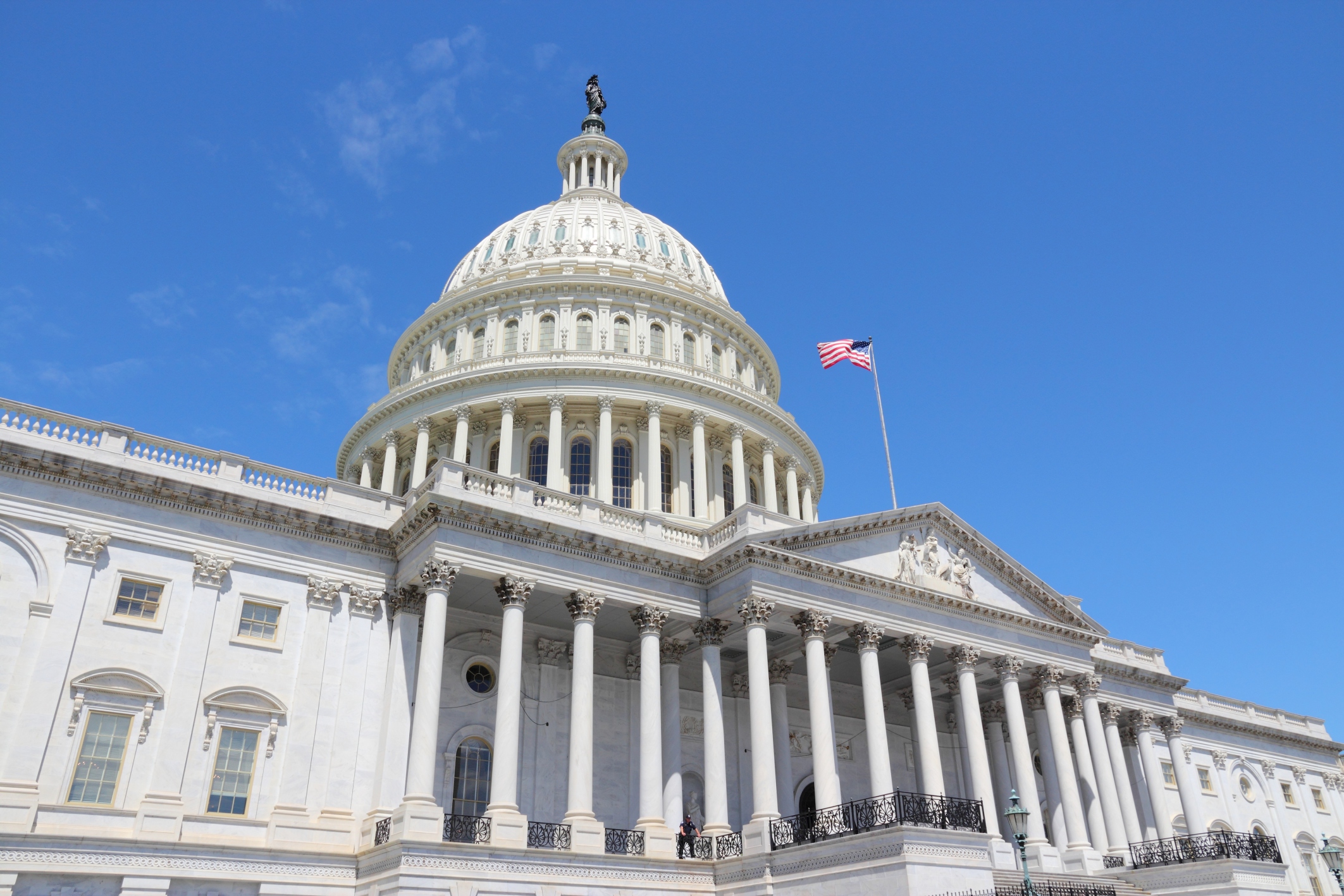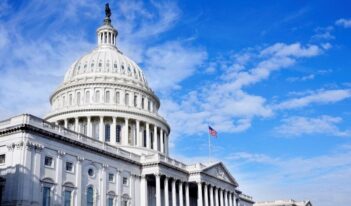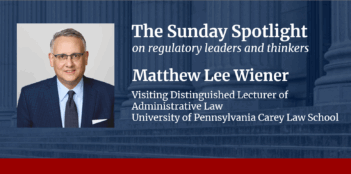
Legal scholar argues that delegation poses a threat to the separation of powers.
Congress often delegates legislative power to the executive branch, giving regulatory agencies like the U.S. Environmental Protection Agency or the Department of Homeland Security broad discretion in carrying out laws. Society depends on such delegation, because it depends on agencies to solve complex problems that Congress cannot address. Although delegation transfers power from the legislative to the executive branch of government, potentially undermining the constitutional separation of powers, judges frequently tolerate the practice because they assume that Congress will jealously guard its power from the executive.
Neomi Rao, a professor at George Mason University School of Law, argues in a recent paper that the judges’ assumption is flawed. She says that individual members of Congress have strong incentives to bypass traditional legislative mechanisms in favor of collusion with administrative agencies, thereby reducing the power of Congress as a whole and threatening the separation of powers.
Because Congress supposedly has incentives to guard its power, the Supreme Court has not strictly enforced the “nondelegation doctrine” since the 1930s. The doctrine holds that Congress cannot delegate its “exclusively legislative” powers to another branch of government.
But as party polarization intensifies and legislators increasingly identify not with Congress as a whole but with their political parties, collective action becomes more difficult to accomplish. As a result, individual members of Congress sometimes can achieve their interests more effectively by delegating congressional power to agencies and then shaping agencies’ use of their delegated authority than by guarding congressional power, Rao argues.
Strategic delegation allows legislators to avoid both the headache of achieving collective action and the responsibility for making difficult choices, while still locking in a specific policy choice, says Rao. Administrators benefit as well, because they acquire the ability to create broad rules.
Rao identifies several ways individual legislators can influence agency discretion, including threats to reduce funding and investigations of administrative conduct. Members of Congress can also influence agency decision-making through informal contacts with agency officials, she says.
To demonstrate the power that individual legislators can exert over agencies, Rao notes that immediately after the passage of the Affordable Care Act, nearly twenty percent of waivers granted by the U.S. Department of Health and Human Services were to upscale business establishments in House Speaker Nancy Pelosi’s district.
But any benefits that individual members receive from delegating power to administrative agencies will wane over time, argues Rao. Delegation transfers Congress’s power to the executive at a faster rate than it expands the power of individual legislators, and such power is difficult to retract. For example, the Dodd-Frank Wall Street Reform and Consumer Protection Act exempted financing by auto dealers from Consumer Financial Protection Bureau (CFPB) authority, but Rao asserts that the CFPB later circumvented the law by creating a rule to cover financial institutions that back the financing overseen by auto dealers. Citing broader authority given to it by Congress, the CFPB effectively trumped a specific statutory limitation and maintained its initial grant of power.
This redistribution of power and collusion between the legislative and executive branches threatens foundational principles of the U.S. government, claims Rao.
She points out that the framers of the Constitution created a system of checks and balances to ensure that “ambition [is] made to counteract ambition.” She argues they established a separate Congress that would enact laws through collective action because a rage for “improper or wicked projects,” would ultimately “be less apt to pervade the whole body of a union, than a particular member of it.”
But sometimes, individual legislators convince Congress to pass ambiguous laws and then use informal relationships, as well as formal tools like threats of reduced funding, to guide agencies’ interpretations of those ambiguous laws. Therefore, delegation paves the way for “improper” projects to become law without a majority of Congress approving the project as a whole, argues Rao.
Rao also argues that agencies can, in a sense, create rules with the broad power delegated to them and then interpret those rules when implementing them. She agrees with Supreme Court Justice Antonin Scalia that “there are weighty reasons “ – including the separation of powers – “to deny a lawgiver the power to write ambiguous laws and then be the judge of what the ambiguity means.”
Rao states that delegation creates a “structural failure” that requires reform.
She points to several opportunities for such reform. First, Rao contends that the Supreme Court should create a more robust nondelegation doctrine in order to encourage legislators to curb excessively broad delegations. The Court has expressed concerns about a lack of measurable standards by which to administer the nondelegation doctrine, leaving enforcement of the doctrine to political checks and balances. But Rao notes that the Court has previously been willing to replace political checks and balances with a more rigid test. In New York v. United States, the Court created a test to limit congressional commandeering of state legislatures some time after stating that political safeguards sufficiently limit commandeering.
Second, Rao argues that Congress should address the problem through political reforms. Possible reforms include publicly disclosing contact between legislators and agency officials to discourage collusion and restructuring congressional leadership and committees to align members’ incentives with the collective Congress. By doing so, she says, Congress will retain its collective lawmaking power that diminishes when it hands over power to agencies.



